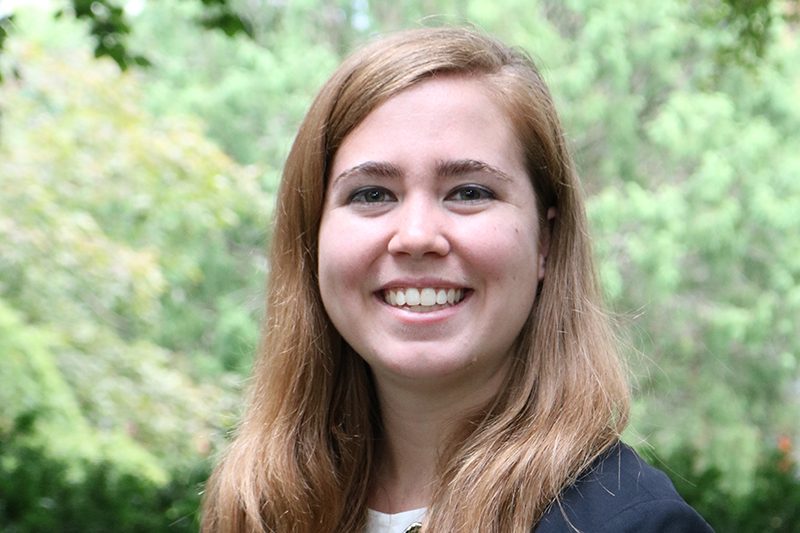Jackson MA student Ellen Chapin is spending the summer making America safer. She won a Harold W. Rosenthal Fellowship in International Relations — a highly competitive award given to only 30 students nationwide, based on their dedication to public service, excellence in the field of international relations, and commitment to the values and professional standards set by Harold Rosenthal and past recipients of the fellowship. Rosenthal was a Senate staff member when he was killed in a terrorist attack in 1976 at the age of 29.
In May, Chapin began her fellowship at the Combating Terrorism Center at the U.S. Military Academy at West Point, where she is focusing on terrorism in Africa.
“I am learning a tremendous amount about applying an academic eye to policy, and how terrorism in Africa has an incredible number of layers: post-colonialism, poverty and Internet access, ethnic tension, to name a few,” she says. “Each day, I work with military leaders and civilian professionals on trends in violence in various regions; currently, some of my writings focus on Boko Haram suicide bombers, the relationship between al-Shabaab and the Islamic State in Somalia, and how climate change impacts terrorist organizations.”
“Having grown up in D.C. and worked for the Department of Justice after college, it’s fascinating to spend time in a place where the policy recommendations we make tangibly affect the future of the student cadets, many of whom will deploy following their graduation,” she says.
“Growing up so close to the government made me recognize how messy politics can be — so naturally, I wanted to get involved!” she says. “While most people hope to move away from where they were raised, I’ve always known that my career will take me back to D.C., and honestly, I can’t wait.”
What initially sparked her interest in global affairs was reading Strategies of Containment by John Lewis Gaddis, the Robert A. Lovett Professor of History, for a high school history class. “The concept of international security and strategy fascinated me,” she recalls. As a Jefferson Scholar at the University of Virginia, she double-majored in foreign affairs and political philosophy, policy, and law, and spent time abroad in Tanzania and Morocco. “I started to realize that while the public was focused on terrorism in the Middle East, it was most important to be analyzing the next potential threat — wherever that may be — since American foreign policy impacts all global policy.”
Looking ahead, Chapin hopes to work for the federal government on counterterrorism, specifically in Africa. “Whether in the intelligence community, State Department, or elsewhere, I hope my career takes me somewhere I can continue to bridge the gap between policy and research, and provide analysis that informs America’s national security status,” she says. “Working for the federal government, especially in policy analysis, will be the perfect opportunity to merge my quantitative skills with my interest in detecting violent extremism,” she says.
When not immersed in her studies, Chapin sings with the Citations. In addition to making music, she enjoys mixing with people from other departments. “After talking about terrorism all day, it’s a nice break to hear what a chemistry PhD is handling in her lab, or what a law student is learning about the appellate system.” She also serves as executive of the Yale Journal of International Affairs and is a member of the Jackson Women group.
Read the research paper that Chapin contributed to as part of her work at West Point.
